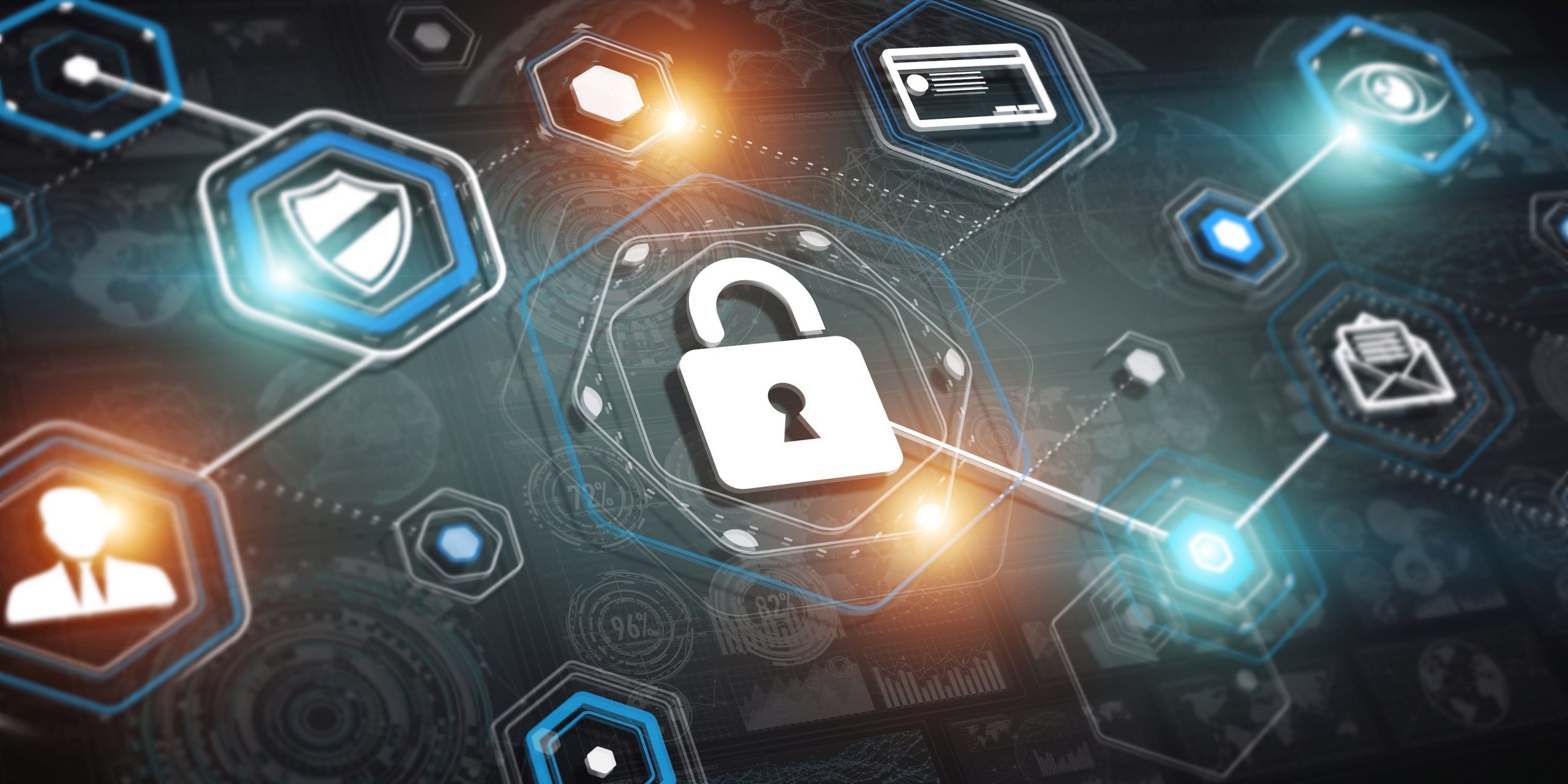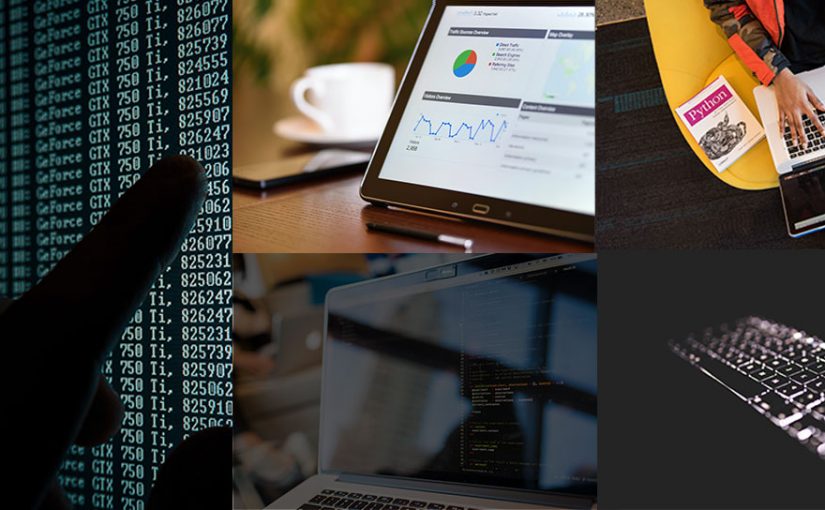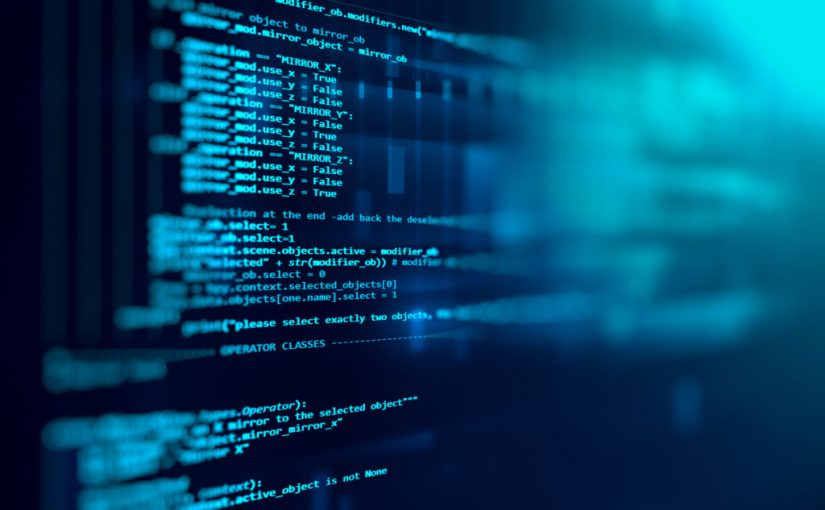Cyber threats are like a mirror, they shine light on the lags in your security system. Working on these gaps can create resilience for your company’s digital presence
January 11, 2021WHAT IS CYBER SECURITY
Cyber pertains to anything related to a digital device. Cyber security, also known as information technology security, is the application of shielding servers, computers, electronic systems, mobile devices, or any document that is digitally available from malevolent attackers. It is the technology and/or process that is created to protect devices and networks from damage, offense by unknown entities, or unauthorized access into the system.
According to Statista, as of July 2020, there are about 4.57 billion active internet users globally. As Covid-19 changed how offices function and work shifted from office to remote work. The sudden need to shift online has put cumbersome pressure on the limited resources of the digital world. As businesses welcome the tech age and utilize technology to ensure smooth functioning of their companies, there is a noticeable increase in cybercrime as well. These cyber-attacks cannot be overlooked as they are capable of becoming the reason behind the collapse of an organization. Cyber infrastructure is trying to manage the new added burden upon its shoulders while cyber attackers are looking for opportunities to exploit potential targets.
Cyber-crime is a fast growing concern and companies need to be vigilant to make sure that they steer clear of any such hurdles in their work environment. There is no doubt about the need for cyber security, no matter the scale of the business or the services of the company, hackers attack many different sites and systems without excluding any domain of the industry. Cyber security helps to protect the business. This in turn increases productivity of the company. A well-integrated cyber security system inspires consumer confidence as it ensures that the web won’t crash and makes it more stable for the clients.
WHY ARE THERE CYBER-ATTACKS
Whenever a cyber-attack takes place, it disrupts the business continuity. Cyber-attacks are done by hackers for multiple reasons. One major reason for these attacks is information theft and manipulation of data. A company can be hacked to get a hold of reusable data, i.e. a code or an unsold product idea. This can become the reason for immense financial loss to the target, causing a capital barrier for the company. Any such attack is extremely damaging to the company as the work of the organization is lost along with valued time. These cybercrimes also aim to give rise to fear and havoc amongst a company by disrupting critical infrastructure of the company, it leaves the employees of the company with a sense of skepticism about whether their data and information is protected or not. This can slow down or disrupt the work all together and cause the company to jolt in the middle of progress.
Another reason for cyber-attacks is to damage the reputation of the targeted company. If the company has a trusted brand image and people are comfortable sharing their information or buying online at their site, a cyber-attack might alarm potential customers and make them hesitant towards buying on your site or being open about their personal data. This can tarnish a well-built image of a company that takes years to build and strengthen. Eventually, this may lead to a gap in sales and consequentially, in profits.
Industrial espionage sometimes gives rise to cyber-attacks. Selling information to a third party for monetary gains. It is very common for these cyber-attackers to demand ransom and for companies to be hacked for monetary purposes where the hacker may demand the company to exchange money for the return of their documents. This can be stressful for a company as both the financials and the documents are of great importance for the organization. In certain cases, the hacker will try to gain bank information of the users by hacking a site, this way the hacker may be able to use these card details and steal from the company’s customers. This would become a huge issue as the clients will be unable to trust the website again and may discontinue buying their products out of fear of another similar attack.
All of these attacks add to the overall image of the company. Every set back may create a ripple effect and take years to overcome. It is always recommended to take preventative measures against these attacks rather than solving the issue when it arrives.
WHO NEEDS CYBER SECURITY
Cybercriminals hack companies of all different scales. They do not discriminate between large scale businesses, new start-ups, or individuals. Anyone who they can get the better of or manipulate to their needs for financial profit is up for grabs. It is the responsibility of the companies and organizations to become more aware of the risks attached to their online presence, so that they can take the necessary precautions to protect themselves.
Most of the companies have realized that cyber threat intelligence or cyber threat security is a critical component of a successful cyber program. Cyber threat intelligence is the information regarding threats and potential hackers that may help detect harmful events prior to occurring. Companies often hire an ethical hacker for this purpose. An ethical hacker is a hacker who will try to hack the company for security purposes; to understand and pinpoint the weakness in the security system so that they can be fixed.
Detecting mischief and devious behavior can help a company plan ahead of time and take care of any mishaps prior to their occurrence. Any company that believes in their brand should consider implementing cyber security. Why? Because of 3 key reasons: availability, confidentiality and integrity.
Availability: one thing that an organization should aim that their customers associate with them is availability. Take into consideration; YouTube. As a user of this site, you never expect YouTube to be unavailable online. This connection is so strong that when YouTube fails to load, the user assumes that the internet is not working, which is probably the case. This value of availability associated with the company makes you a dependable business that makes users feel comfortable in trusting your brand name, product, and service.
Confidentiality: a user should always feel safe when using a site or online service. The user should not feel skeptic about sharing any information on your site, app, or service. Take for example, the apple store. When a consumer wants to buy anything online on the apple store, they do not worry about their personal information being misused or their credit card details being stolen. The user feels a sense of confidence in the brand which makes them feel sheltered when they use their personal data to avail your services.
Integrity: a company should be able to offer quality services and products consistently. Imagine parts of a website are down due to any cyber security concerns, and the users are feeling lag in the system. This is not the sort of quality you want your company to be associated with.
All of these three can be affected due to a breach in your cyber security. In the ever evolving field of cyber security, you have to be agile to survive. Today users have multiple options available to them and they are demanding the ability to transact fully and securely in the digital domain. To stay on top of the competition, company’s offer the latest and greatest security solutions to their customers. Companies hire or outsource cyber security experts. These are individuals that are responsible to identify potential flaws, identify threats to the system, and create, design, innovate, streamline and architect methods to shield all the assets that the organization has. This is not a one time job and it requires that the organization stays on top of the problem at all times. This on-going process requires on-going work.
The cloud makes life easy for an individual as well as an organization. It has revolutionized how data is stored. Unfortunately, benefits can also accrue to the hackers with nefarious intentions – companies are moving to the cloud swiftly. Higher efficiencies, quicker speed to market and many enhanced capabilities drive up demand. Moreover, underlying cloud infrastructure can be more secure than legacy infrastructure thanks to additional attention paid by the cloud vendors as well as a consolidated and integrated approach. With that said, there are downfalls from a cyber-security perspective. The major concern among them is the requirement for comprehensive and extensive security solutions that incorporate the cloud as well as legacy infrastructure. This is a tiresome task and not many are equipped to do both. The market still faces a shortage of cloud security expertise as most cyber security experts are still focused on infrastructure security. Due to the lack of hybrid solutions that cover both, cloud and legacy, companies are faced with a challenge to build in system-wide security. Minor errors in configuration on cloud can yield devastating consequences, as demonstrated by many breaches in history. It is only sensible to expect an increase in both, the use and the misuse of the cloud driving up the need for talent and integrated cloud security solutions. It will not happen without a manifest plan as well as an organizational commitment at all levels.
COMMON ATTACKS
Cyber security works by securing various digital components, i.e. data, networks, and computer systems. There are different types of cyber-attacks on a system. One of these is a malware attack where the system of the attacked is corrupted due to a file that included a malware. These files, once downloaded, cause the malware to be installed on the system.
The easiest way to attack someone is through the password attack. This is done by cracking the password of the individual by various different methods. Sometimes a hacker will manipulate the standard SQL query in a website that is database driven. This is called an SQL injection attack. Through this sort of an attack, the hacker seeps into the system in such a way that he is able to view, edit, and even delete tables from databases.
Another very common type is a phishing attack. Here the hacker will probably send fraudulent emails to the individual or the organization. These emails are always masked in a way that they seem to be coming from a legitimate source or website. This type of attack is done to steal data such as credit card information or log in credentials or to install malware on the system.
Another type of attack is the man in the middle attack. Here the hacker gets access between the individual and the server. The hacker masks himself behind the user’s IP address and this helps the hacker to secretly intercept the line between the server and the individual. This is usually done via malware attacks or through public or unsecured Wi-Fi networks.
Other attacks include, DOS or denial of service, drive by attack, cross-site scripting attack, eavesdropping attack, and birthday attacks.
HOW CYBER SECURITY WORKS
Cyber threats are like a mirror, they shine light on the lags in your security system. Working on these gaps can create resilience for your company’s digital presence. The first thing that can be done to prevent yourself and your organization from a cyber-attack is installing a fire wall. This is a virtual wall between the individual’s computer and the internet. A firewall helps by filtering the incoming and outgoing traffic on a device and ensuring that malware does not reach your system. A firewall can either be a software application or a hardware.
Secondly, the organization or user can implement honeypots. Honey pots work in a similar way as flowers attract bees. These honeypots are deliberately made to look vulnerable to deceive hackers and in turn keeps the actual system secure.
Cybercriminals target individuals, usually through online scams or by the theft of information via devious software put on your devices which can then be used for monetary gain.
You can protect yourself against cybercrimes in multiple ways. The first thing to do is to create an alphanumeric password for all your logins. These are the most secure passwords and make it difficult for hackers to conduct a password attack on your system.
It is also important to limit the amount of personal information you put online, including on social media. This information can be utilized to scam an individual. A person should always be suspicious of any unsolicited requests for personal information. Be keen on who you share information with as this information could be used against you.
“Technology trust is a good thing, but control is a better one.”
― Stephane Nappo
In an organization it is quintessential that all the employees are briefed about cyber security as not every employee comes from a technical background and they may not be aware of the potential threats that can develop by the most minor mistake. Employees need to be explained to avoid clicking links or opening attachments from suspicious messages. This one click could be separating you from a malware.
If possible, an organization should avoid giving anyone remote access to the company computer. This might be especially tricky to get around given the current rise of remote working during the pandemic. It is easier to manage the security of a system when it is under one roof with a secure Wi-Fi connected to the systems.
When making an online payment, make sure that you research the website before sharing your credit card details. It is also very important to enable two-factor authentication for services such as email, bank and social media accounts. This method effectively “double-checks” and makes it easy to detect if someone is trying to infiltrate the system.
Regular updates are very important for a secure and safe system. Timely update software on your computer or ensure auto-updates are set as cybercriminals are always looking to exploit weaknesses in software. Companies must have a clear procedure and setup for who can access, and who can control the business’ information. Restrict administrator privileges to a numbered amount of employees and that also on the basis of requirement alone.
Businesses and organizations are also encouraged to follow additional cyber security practices to ensure that their data and work is protected at all costs. Companies should follow the best cyber security practices to improve resilience to cyber threats. This includes; enabling automatic updates, automatic backups and multi-factor authentication (e.g. use of a biometric system to log in).
Cyber security requires thoughts, logical reasoning, knowledge about the system, and commitment to correcting the flaws. This is why cyber security training needs to be provided to staff as the action of any one employee could result in the entire company facing the consequences. Training should be regularly updated and repeated so that any changes can be shared with the employees and also to help refresh the idea and the importance of these practices to the employees.
A critical action that companies should take is to develop a cyber-security incident response plan. It is impossible to be 100% sure that the company, the data and the product or services being provided are secure. Hence, it is essential that an incident response plan is devised. This plan can be executed in the event that an attack has been faced by the company; like a strategic plan B to help the company keep the work running smoothly in dire circumstances.
A chain is as strong as its weakest link. It is usually the non-IT employees that become the weakest links in cyber-security efforts. These employees casually share passwords, click on links, download attachments, with little to no knowledge about encrypting data. All of these practices open the doors to cyber-attacks and can comprise the security of your business. Only an orientation into cyber security can help prevent these employees from making a mistake that may cost the business immensely.
Even the toughest of cyber intelligence systems would fail if they did not cater to their weaknesses in time. Setting up a policy on cyber-security would aid your team and third parties with access to your digital assets in understanding how to keep your data secured and safe from the prying eyes of cybercriminals. As a business owner, director, chief officer, you must take responsibility for creating a culture in the work space that prioritizes security; this would enhance the credibility status of your business and benefit your company by keeping the integrity of the company intact.
The first virus created was back in 1988 by Robert T Morris called the Morris worm. In 1999, a virus was created by David L Smith called the Melissa virus. Since then, there has only been an increase in viruses and the advancement of their functionalities. Anyone who has an online presence is susceptible to an attack and needs to take the necessary precautions to avoid any such mishap. As cybercrimes become increasingly prevalent and work moves online swiftly, businesses and company owners need to be aware of the major threats and how they can protect themselves. This ranges from making small adjustments in day to day functionalities as of how we live our virtual lives to implementing more extensive changes in the company system to incorporate data safety. Such changes require technological expertise to strengthen systems and devices, and management expertise to ensure that corporate culture, policies and procedures support the safe operation of a business online.
Cyber Security experts identify the weakness in the system, repair the weakness and help to strengthen these areas. On a day to day basis these experts will check to ensure that there is no network breach and that the company work is running smoothly without any infiltration from outside. These experts will monitor the systems to identify any potential threats. Further they will help to track the source of these security concerns so that the issue can be resolved and avoided in the future. The job requires the person to be on their toes at all times which is why hiring an ethical hacker on your team or a cyber-security officer to overlook your work processes can be quite beneficial.




